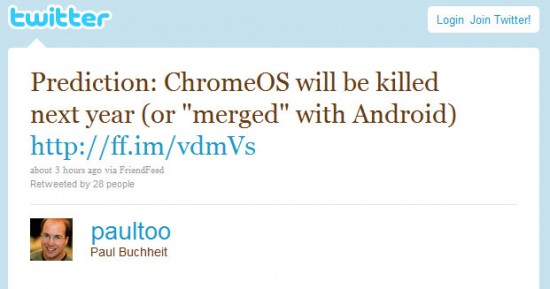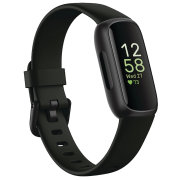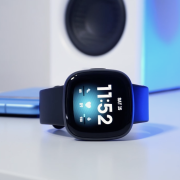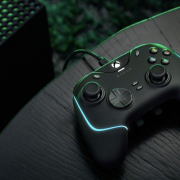The creator of GMail, who is currently a Facebook employee, has tweeted a prediction that may or may not have you pretty shocked: Android will kill or swallow Chrome OS within the next year:

Ever since Chrome was launched – first the browser, then the extensions, then Chrome OS – critics have wondered how the two Google initiatives would co-exist when they overlapped in so many areas. Last year I discussed this exact topic, and it seems even the founder and CEO of Google couldn’t agree on whether Android and Chrome would converge or integrate. With an in-the-know tech exec making such a bold prediction, one can only assume Android and Chrome are, at least to some degree, on a collision course.
Our friends at ChromeSpot.com recently got their hands on Google’s first official piece of Google Chrome Hardware, the CR-48 Chrome Notebook, and first opinons are across the board. It’s interesting to note that some critics believe Chrome OS is a transitional device, and, much like Android- simply needs some time to grow and mature.
Only time will tell, but since the bigwigs are having their say, can’t we have ours?
[polldaddy poll=4246413]
[Via ChromeSpot]











that so stupid why would i buy a computer with only internet… dumb idea guys!!! just merge it with android and sell the laptop…
Whare’s the alternative that both will do just fine on there own? I actually think so. ^^
i believe there is place in the world for the chromeos devices. killing it would be silly. merging it with android might work if done right.
I would like to see the two integrate and users would have a dual boot option Chrome OS for quick easy browsing, Android if they need to do some real computing.
oh, and a “Chrome OS is fine as it is” option would be nice in the poll.
It will only survive if we can install it onto our existing non touch screen netbooks…
Doesn’t matter to me, currently owning a Android and Chrome 0S(cr-48) devices. I can see both of these platforms being of good use.
I also vote for a “Chrome OS will do fine” option, it’s fulfilling a very different role to android, and any attempt to integrate them would greatly reduce android’s effectiveness as a mobile os
I agree with JR. I think we still need a traditional operating system. Kudos to Google for trying to reinvent the wheel, but this one never should have made it past google labs. There are a lot of great ideas in the os though…I’m hoping for integration.
Sorry guys. Added the Chrome will be fine on its own option :)
I don’t think people understand the point of Chrome OS: Google wants to cause a paradigm shift towards cloud computing. Why do you think Google is offering free Verizon data for two years with the purchase of a Chrome netbook? Android, on the other hand, is more of a traditional OS experience, thus Android and Chrome OS target completely different audiences and needs. Chrome OS is, just as its detractors say, only a browser–but that’s the point as most people only need a browser nowadays. Heck I increasingly use Chrome for things other than browsing anyway, such as opening PDF files. If the platform and webapps are given a chance to mature I think we’ll start seeing Chrome OS a lot more often.
With the price of android devices sitting at around $500 (unsubsidized or higher) I think there is plenty of room for Chrome OS. You don’t need the more expensive touch screen or the processing power to run it. Of course it could get out of hand and become just as expensive, but hopefully Google will keep it simple. With Android, we want our devices to do EVERYTHING. Chrome OS is designed for the internet, and that’s it. I hope it makes it.
I don’t think Chrome OS is a “dumb” idea it’s just not appealing to me personally. I’m all for the cloud idea but there will never be the day when I will allow all my computers information to be in the cloud.
It’s just the Chrome browser on top of a Linux kernel..
Which would be okay, if it weren’t for Honeycomb. As soon as I saw that tablet UI, better than the iPad, I began wondering why netbooks couldn’t run that, and why on earth ChromeOS even exists.
if they integrate ANDROID and CHROME cross platform like phone/pc, great.
i love the way all my social stuff updates to my DEFY now.
i read my morning dose of email and spam in bed when i wake up on my phone.
lot’s better than traipsing all over the house doin’ chores before their time.
Its what Joe public wants and at the moment they have heard of Android and will look at it. Chrome on the other hand will remain in the tech domain like Linux – that doesn’t mean it won’t be used in all sorts of control devices but if you want consumers to buy netbooks powered by Chrome better rename that version of Chrome Android for “????” and make the look and feel similar
Android is for phones and tablets. Chrome OS is for netbooks and laptops.
The real question is not about the two OSs, but their target products.
Phones and tablets are still growing quickly while netbooks are in decline.
I think Google might be able to release a product that really makes netbook hardware fly. If they can really bring the notebook experience to a netbook, Chrome OS might be a success.
@Jeff J – I think you’ve got completely the wrong end of the stick as to what Chrome OS is, Chrome Browser is designed for the internet only. Chrome OS is intended to be a fully function operating system, with the Chrome Browser at it’s base, think explorer in Windows OS. Chrome OS has a place because of the extended features it offers, not the reduction, Android is intended as a phone OS, it’s extension to the tablet market was unintentional, and in fact went against Google’s wishes, and because of this has various restrictions, and requirements inherent in it’s design, extending it to run on net-books etc would lead to a bloated system which is no longer suitable for the task it was designed for. Look at windows CE if you want to see how that ends up. The best solution is parallel development of the two specialised OSs with all integration performed through the cloud.
Honestly, cloud IS the future. Whether people are ready to admit it or not. While the cloud is developed and becomes more viable an option to the regular consumer we will see cloudlike integration into mobile OS’s like kin,android,sidekick etc…. its already here.. Just that traditionally we think of desktops in a whole different way but with mobile computing/tablet computing people will change the way they think about these devices. Especially with modern browsers becoming increasingly more powerful with features such as hardware acceleration.
I think it benefits an employee to say Google’s cloud OS will be a failure because its not good for FB to see Google take over the cloud because that is precisely what FB is trying to do. Its kind of a clever way of talking down the competition by using one of their own competing products.
Eventually Chrome and Android will converge… but in the end the Cloud will win out.
Might not be such a bad idea to keep separate an OS based on touch input (Android) and an OS base on regular mouse/keyboard input (Chrome)
@Vinnie, I think you have it. Google’s main goal is to have an OS independent computing platform. The platform is the Chrome Browser and it can run on iOS, OSX, Win 7, and Android. The Chrome OS is just a vehicle to get more people using the Chrome OS and the web apps. Android can be that vehicle too, the difference lies in the level of browsing offered in the Chrome Browser for Android vs Desktop. As that gap narrows the point will become more muted. The main obsticle to browser based computing is the the lack of a persistent internet connection. Google has been focused on trying to expand internet coverage from their attempt to acquire spectrum up through the deal with Verizon for the Chrome Book. Without a persistent internet connection there is a need for native applications. One place where internet is ubiquitous is in the workplace. I think the Chrome OS was intended to weaken the windows monopoly in the workplace by offering an easy to maintain platform. IF MS Office runs on chrome, then windows becomes less important all while the google docs becomes more viable. So the chrome platform is here to stay because it is a very important strategy for Google. The hardware extensions are being minimized and I can see those extensions blending with Android and Goodle looking to maximize the Android branding. ogy plays out will be a mashup based on touch screen
I’ll like to see Chrome OS as the Desktop manager(But still as an OS for computing purposes) for Android. Android does not have a simple to use sync dekstop manager and dragging and dropping a file to the sd card is like im in Win XP stages, and im using OSX. Chrome OS will do well, if used properly and people adopt to cloud services.
If you asked me a week ago, I would have said that Chrome had no chance. That was before I woke up to a Cr-48. I can honestly see Chrome OS become a viable choice for portable PC replacement. Google said it themselves, Android is for touch-based devices, and Chrome OS will be for notebooks and netbooks. It actually makes sense. That said, I cannot immediately seeing a Chrome OS notebook being someones only proper computer.
I’m a developer, and die-hard Mac user for years. I have already been using the Cr-48 as my main personal computer, and I love it. I can’t wait to get my whole family on Chrome (so my tech support is no longer needed).
BTW – The poll is not working. I obviously vote “Chrome OS will succeed on its own.”
I love Chrome as a Browser. But as an OS…oh, thats not going to happen. Sticking with Windows for desktop and Android for mobile. kthx.
@Vinnie, agree with MOST of the things you say. Though I don’t think it is against Google’s wishes that Android has become a tablet OS, I think that they just didn’t want people to use it that way before they developed for it. I think the initial intent with android was to create an OS that was extensible enough to run anything, and any resistance Google has given is due because they didn’t want to manufacturers to release products that weren’t ready and would make Android look bad. It sounds like you think I was saying Chrome OS is a simplified version of Chrome…and quite obviously, that isn’t what Chrome is. I was saying Chrome OS was designed to reduce the complexity (without reducing the capability) of netbooks.
@porkchop,
google chrome is currently still in their lab phase. it’s not available to consumers yet. and to be honest, i’m ready to pick one up as soon as available (anyone have a spare cr48?)
The selection are almost similar.
.
Who made this poll??
Nice poll. Like 5 options against Chrome OS surving, and one pro-surviving.
employee of facebook post a tweet on twitter…sounds funny
I am sorry but Chrome OS was a good idea before Android blew up but now it’s DOA. Chrome is good for Netbooks but how much longer will people buy those after the real Android tablets start coming out, its to little to late. Remember Chrome OS was suppose to be for tablets but manufacturers forced Google to change their plans by releasing multiple crappy Android tablets.
Mass market adoption of Android seems to be dampening the demand for Chrome OS. This could be a timing issue due to the iPad. Sammy, Moto and the rest needed an iPad competitor and with ChromeOS not ready to go and they didn’t have anything in-house, they went with the next logical choice: Android. The determining factor will be consumer acceptance of ChromeOS, if the mass market is willing to learn and adopt another UI, in particular in the context of Android being able to perform the same functionality. Apple didn’t want to build a netbook because of the low margins and went iPad. I wouldn’t be surprised to find that the other manufacturers are of the same opinion. My opinion is that Chrome will survive, but so far it looks like it will be a niche existence, that is unless it can do something that Android on a tablet can’t.
Chome OS is intended for thin client computing: it repairs itself on each reboot and comes equipped with plenty of security. MS applications can be run off a Citrix server, where end-users can’t screw them up. All things considered, this operating system has plenty of potential for success in educational and corporate settings, even if it turns out to be a total bust among consumers.
I think every one miss understanding the reason behind Chrome OS. Its not about computer or OS its just all about the WEB! Google plane field is the World Wide Web. Everything Google does is for the web that includes Android. Android was created to give them the upper edge in the mobile era. If Android didn’t exist then Google would be in trouble in term who they will deal with making their search in as default for the phone browser. Think as Android out of the picture and iPhone was only player then you Web OS and Windows 7. It would be hard to make sure all these OS are full compatible to all Google services and default search engine can be paid out like Bing tried with iPhone. If you really think about it Google invest vast amount of money in Android. Its not only about the OS that giving out for FREE. You also have Google Voice search, Gmail, Goggles, Gtalk, etc etc. One thing every one don’t realize this thing all are free as service. The phone it self dont do much then submit the information to Google server and then sent back to the phone as result. One reason to do this is by capitalizing their customer and holding the customer in their hands.
Android is more for mobile devices as Phones and soon to be tablets where Native Apps and the web side by side exist.
Chrome OS is all about the WEB and only the WEB. If you look at all Google Apps almost every app they have there is a Web version. Which includes mobile, tablet, desktop and soon to be TV version. Chrome OS wont replace your computer yet. But if you are person who 90% of all computer activities is does all on the Web (Browsers) then Chrome OS is perfect for you. For example, you use Gmail, Gtalk or Aim, Google Docs, Sumo Paint etc..
One thing problem in the web is organizing which Chrome OS was created for. Every one uses Web app, even Facebook is a web app (other words social network web app). All these have urls to remember and use name password to deal with and they are organized using bookmark. You know your daily routine visiting all your site. Now image you have 1 log in that is to your Browser which will be safe and secure that can organized all your web. The device will be instantly on, nothing is save on the devices so much less change of virus. The biggest advantage will be your PC will be accessible from anywhere as your Gmail only using a your Id and password. Eventually it wont be your personal computer it will be your Account you access to that has all your personal stuff.
Do be cared about your privacy you already gave it away when you made your email and Facebook account. All your internet activities account and everything related to you revolves around your email account. Unless you have your own email server every mail you have is not your. Sure its in your email but its under someone else server like Google, hotmail, apple, etc. So keep that in mind your biggest identity is your email that is in the WWW next would be your Facebook account. Every online account, bills, statements everything comes to your email but where is the email saved have you ever think about that when sign up for your bank account online with your email address.
Back to the topic Chrome OS will be use for only access to the WEB. Web application with a could in the back-end can do your task/work faster then any computer you can buy that will be obsolete in time.
I think Chrome OS will merge with Android but not any time soon. Chrome OS will be build and use only for Web applications and Android for the mobile environmental with Native App support. If you really look in too it they might do the same thing at some point but works and build for different purpose.
i voted chrome os will suck and kill itself,to me chrome os is nothing but a glorified web browser
in fact im using chrome os right now on my windows pc
cloud based apps and data is not what makes chrome OS special, it’s the cloud-based persistent session that you get, no matter what netbook you are using
you could be working on your resume and be in the middle of an IM session and suddenly your netbook bursts into flames, you just put out the fire and grab another netbook from the store (preferably under $100). After you log into google, you are exactly back where you started, with your IM windows and documents still open.
It’s a bit like Windows Terminal Services or Cytrix server, except html5-based and web-optimized
chrome OS was designed from the bottom up to be a net-only dumb-terminal, android was designed to be atleast semi-independent of the net. Combining the two projects would just lead to unnecessary bloat on both netbooks and phones
btw, I find the whole “android is for touchscreens, chrome is for netbooks” statement to be rather silly. What is the difference between a touchscreen-enabled netbook, and a tablet with a slide out keyboard?
Way too much archived private information in the hands of one entity. No matter how much we love Googles Innovations.
I don’t know, many people archive all their photos in the cloud. Documents too. This (cloud archiving) isn’t a new concept by any means, and is actually quite prevalent at the consumer level.
Aaron has it correctly. that’s the benefit. Fully portable document and information management, NOT tied to a specific piece of equipment that is limited in capacity and durability.
Also, remember when Windows first came out? I was hard-core DOS-guy. I couldn’t imagine what the heck I would do with those silly and inefficient windows. I eventually got it, and would never think to go back.
I’m not sure exactly where the “Android will kill Chrome” option even came from; certainly not from the guy’s twitter post. He did not say that Android will kill it, just that it will be killed (didn’t say by what/whom). The “with Android” part was part of the parenthetical phrase “will be merged with Android” and did not apply to the “will be killed” part.
On another note, I find it funny how we are basically going back to the time of mainframes and “dummy” terminals, which is what they had in the 80s. Only back then, you had to be on the local network, and the connection was text-only, usually monochrome. But other than that, it was the exact same thing; all your apps and data were stored and served up by the mainframe (Google’s servers in the new scenario), and the clients were “dummy” terminals, which could do nothing but connect to the mainframe and allow interfacing with the apps/data (the Chrome netbook in this case).
HAAAAAAAA
Distro War! Each project has a different focus. However, just like all Linux distros, they will share different components over time.
(Some may see having separate distros as a bad thing like forking, but forking itself is an inaccurate term because in open source the fingers of the forks are continually shooting off tendrils to and from other fingers. The important thing is that with open source the developers know that intra-organizational political pull or organizational/corporate power don’t have final say on what goes into a product when all is said and done. So, crap decisions are more quickly quashed.)
The only way to compete with iOS would be for the 2 to merge. An Android/Chrome OS could be everything iOS is, only operating in the cloud. Looking at it that way, it could be ultimate mobile solution. Phones/netbooks/laptops basically being integrated!? You could marry them up on a desktop at home and sync them similarly to what Microsoft does with Outlook/Exchange. I’m sure this has been thought through thoroughly @ Google Camp and if it’s not on the the road map, it’s definitely on the table. When Android gets more polished, and Chrome gets established, I doubt there would be a reason to not have them integrated. (Case in point, anyone use Chrome to Phone extension yet?)
I’m sure it will
Chrome is for keyboards. Android is for touch. Keyboard and touch devices dont currently mix well. Until computers seemlessly process voice (keyboards go away) ; they will be separate.
One thing that may allow ChromeOS to succeed: enterprise. Like linux, ChromeOS eliminates the $50 “Windows Tax” on keyboarded devices. The cost/feature tradeoff has a weak value proposition for consumers, but makes a lot of sense for enterprise-level IT. Stop managing/supporting thousands of devices (they’re now “disposable”). Stop worrying about data loss (Google will do that for you). It just works.
ChromeOS is not for data-consumption/personal communication (that’s Android). It is not for creative professionals (this will become more of a niche, and the triad of desktop OS’s fill this need). But ChromeOS is for using web apps and sending e-mails, which comprises 90% of white-collar professional work.